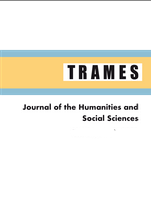INFORMATION AND PROPAGANDA COMPONENT OF THE RUSSIAN FEDERATION HYBRID AGGRESSION: CONCLUSIONS FOR DEVELOPED DEMOCRATIC COUNTRIES ON THE EXPERIENCE OF UKRAINE
INFORMATION AND PROPAGANDA COMPONENT OF THE RUSSIAN FEDERATION HYBRID AGGRESSION: CONCLUSIONS FOR DEVELOPED DEMOCRATIC COUNTRIES ON THE EXPERIENCE OF UKRAINE
Author(s): Vadym Torichnyi, Tetiana Biletska, Oleksandr Rybshchun, Dmytro Kupriyenko, Yurii Ivashkov, Artem BratkoSubject(s): Political history, International relations/trade, Security and defense, Political behavior, Political psychology, Politics and communication, Transformation Period (1990 - 2010), Present Times (2010 - today), ICT Information and Communications Technologies, Peace and Conflict Studies
Published by: Eesti Teaduste Akadeemia Kirjastus
Keywords: hybrid aggression; information security; information confrontation; information and psychological technologies; propaganda; realization of threat scenarios;
Summary/Abstract: On the basis of analytical investigations, the current article has carried out an analysis of information and propaganda component of the Russian Federation hybrid aggression against Ukraine at the present historical stage. The key components of Russia’s ‘information weapon’ have been identified, and it has been emphasized that Russia’s information and propaganda campaign over the past decades has targeted both the specific states of its aggression and the entire consortium of developed democratic countries in the Western world, especially their major associations – the EU and NATO. The experience of a number of countries, in particular Latvia, Estonia, Georgia, in counteracting Russian propaganda has been investigated.
Journal: TRAMES
- Issue Year: XXV/2021
- Issue No: 3
- Page Range: 355-368
- Page Count: 14
- Language: English

